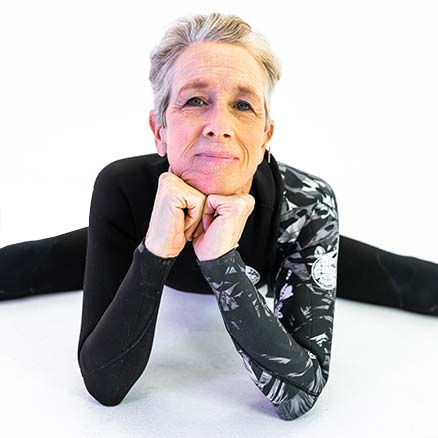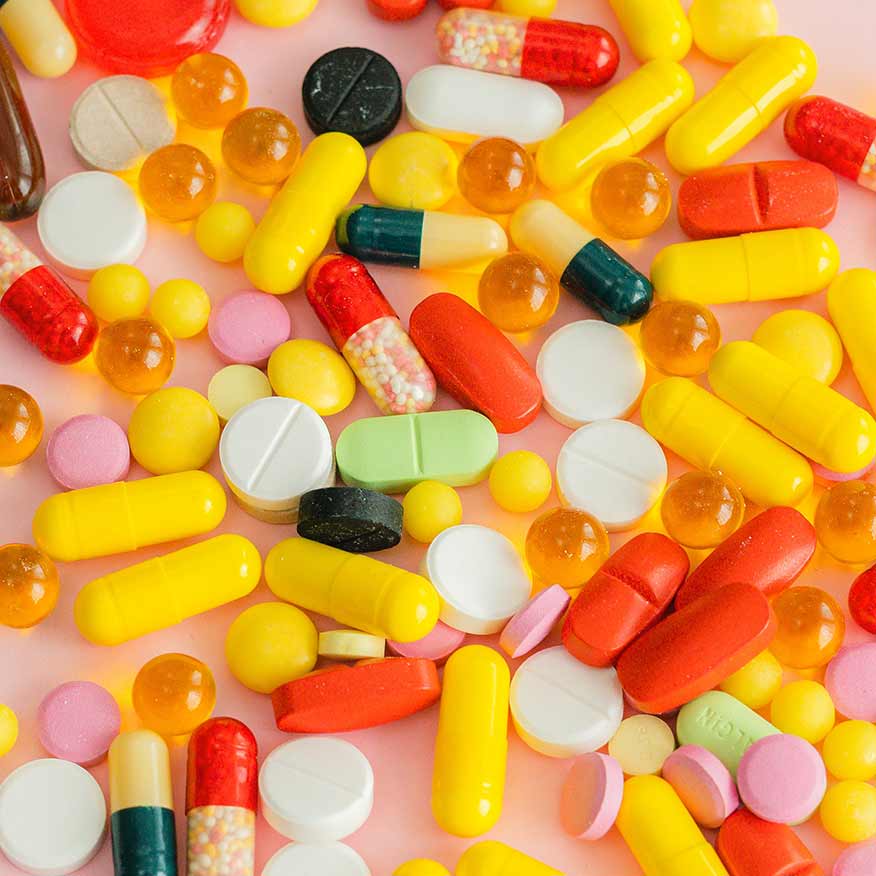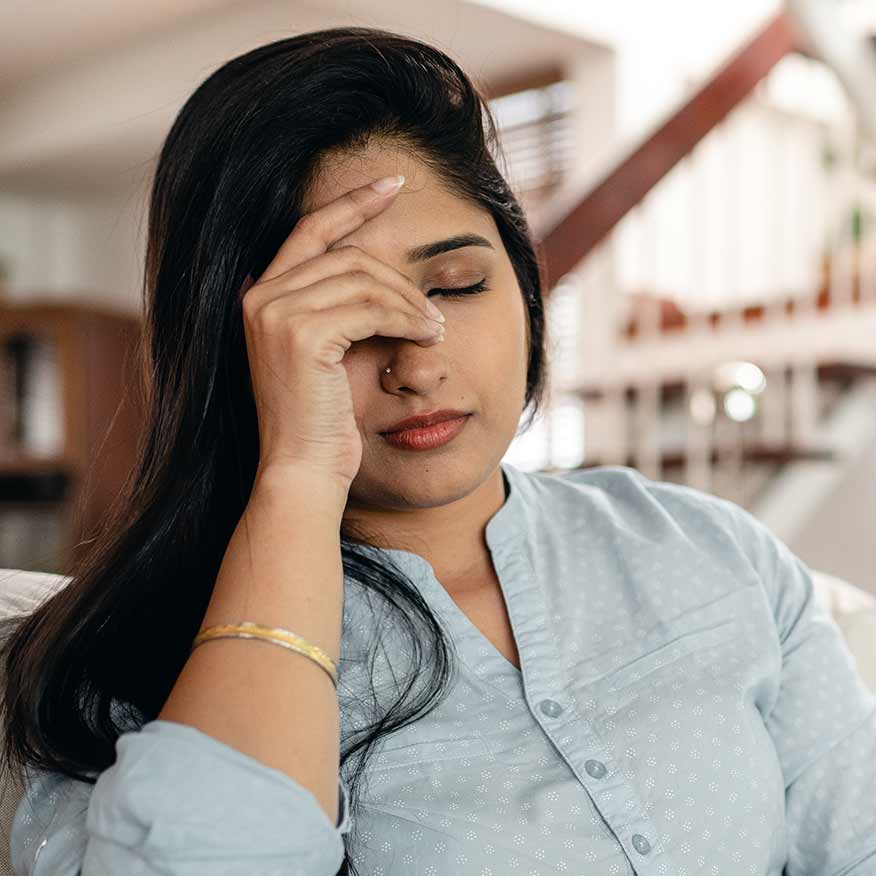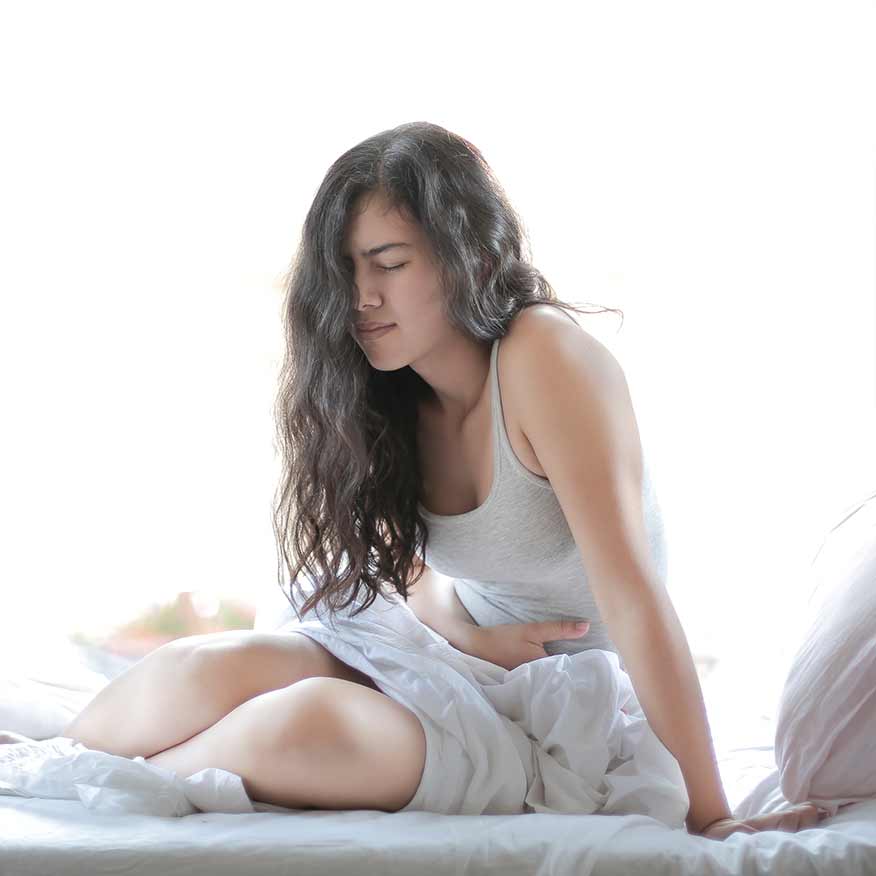What Causes Vaginal Dryness?
There are five main causes of vaginal dryness: low estrogen levels, emotional and/or psychological issues, side-effects of medication, chemical irritants and skin conditions.
If you have arrived at my website, you're probably looking for help for vaginal dryness. I completely understand. Being a graphic artist, I created the Vaginal Dryness Help website to assist others who struggle with this unfortunate, but actually quite widespread affliction. I went to several doctors. I overheated the Google Search Engine. I did whatever I could to address this super-annoying issue that not only caused relentless irritation, but also limited the intimacy with my husband. I came across a lot of information, but nothing that solved the problem.
After months - MONTHS! - of suffering and dead ends. I finally found an amazing integrative gynecologist who was able to put together a comprehensive strategy for alleviating my symptoms. Now I understand that you may not live in New York and can't just scamper over to her office, so I put together this guide so that you can discuss these solutions with your doctor and figure out what would work best for you. If this website makes a difference in your care, please drop me a line. It took a lot of effort to put this together and I'd like to know if it's helping others who suffer from this exasperating ailment.

There are five main causes of vaginal dryness: low estrogen levels, emotional and/or psychological issues, side-effects of medication, chemical irritants and skin conditions.

During and after menopause, your body makes less estrogen, which is a hormone that helps maintain lubrication, elasticity and thickness of the vaginal wall. Low levels of estrogen can cause thinning, drying and inflammation of the vaginal wall, a condition called vaginal atropy.
However, there are additional factors to consider. Low estrogen levels and vaginal moisture may diminish as a result of childbirth, breastfeeding, cancer therapy, or anti-estrogen medications.
Smoking is another lifestyle factor that contributes to vaginal dryness, as well as earlier than usual menopause and low estrogen.

Vaginal tissue can be dried out by cold and allergy drugs, as well as some antidepressants. Vaginal dryness can also be a symptom of Sjögren syndrome, an autoimmune disease that causes dry lips and eyes.
In the past, many doctors were too busy dealing with other side-effects of birth control pills such as acne and weight gain to address the connection between the Pill and vaginal atrophy. However, vaginal dryness affects three to five percent of women on low-dose birth control tablets. According to one research study, the proportion of women who experienced vaginal dryness as a result of the Pill after three menstrual cycles ranged from 12.7 percent to 30.4 percent.
Chemotherapy drugs can also induce dryness by inhibiting estrogen production in the ovaries.

Anxiety and stress can do a number on sexual desire. These and other psychological and emotional factors can lead to vaginal dryness as well since they can interfere with the flow of blood to the vagina. Figuring out how to overcome underlying mental issues and tension may be the key to improving dryness symptoms in some women.

Certain chemical substances, including douches, condoms, creams, contraceptive foams, laundry detergents, soaps, scented toilet paper, baby wipes and fabric softeners can irritate the vagina and surrounding areas. If this is happening to you, systematically eliminating one item at a time can identify the culprit.
In some women, bacterial vaginosis can cause dryness. A healthy mix of bacteria in the vagina is normal, but the wrong bacteria can result in an infection. Besides dryness, other symptoms from bacterial vaginosis are inflammation, itching, burning, a funky discharge and a fishy-smelling odor. If you've got dryness with an aroma of Chicken Of The Sea, then it's time to make an appointment with your doctor. Pronto!
First and foremost, find a reputable doctor. I tried gynecologists, dermatologists, psychics, you name it. Most simply wanted to give me a prescription after discussing my issue for 2.38 minutes during my office "visit," and send me on my way. Others meant well, but had absolutely no idea how to tackle the problem. I was finally recommended to my current physician by a friend who was struggling with a similar issue, which only came to light after several glasses of wine. Major bonding moment.
I visited her website, and she had an entire section on vaginal dryness. This was the first clue that I was on the right track and something you should look for when researching a gynecologist for yourself. What I think made the difference in my particular case was that she was also a functional medicine practioner. Now, I had never visited an integrative doctor or any other "woo-woo" medicine man, but something on her website connected with me: root cause. The way she explained it to me was that a functional approach looks to understand the root cause of issue and then treat the cause in order to remove the symptoms — as opposed to reducing the symptoms without addressing the underlying problems. In a nutshell, fixing the problem instead of giving you a prescription to mitigate the problem. This made a lot of sense to me, considering what I was going through. It also made even more sense when I learned she was a board certified medicial doctor with enough diplomas to eliminate the need for wallpaper in her office.
Obviously, I understand if you've discovered my website, you may not be from the New York metropolitan area. But I wanted to share what I learned when going about to find the right doctor. So here's what to look for:
There are several vitamins and supplements that have been shown to help prevent vaginal dryness and increase female lubrication.
Vitamin E is an antioxidant that some research suggests that it could also be beneficial for increasing lubrication and reducing vaginal dryness.
Vitamin D is generated by skin cells from sun exposure, but some studies have indicated that it could increase female lubrication and improve vaginal health during menopause.
DHEA (Dehydroepiandrosterone) is a type of steroid hormone that participates in estrogen production. Since DHEA production naturally declines as you get older, it’s sometimes used as a supplement to help balance hormone levels and reduce symptoms associated with menopause. Additional studies have determined vaginal administration of DHEA could significantly improve female lubrication, reduce dryness and increase levels of estrogen in postmenopausal women.
Fish oil is taken as a supplement to increase omega-3 fatty acid levels for heart health. However, some research suggests it may be beneficial for increasing female lubrication during menopause, enhancing estrogen levels and improved self-reported vaginal dryness for postmenopausal breast cancer survivors.
Simple, water-based lubricants can help add moisture to the vaginal lining when dryness causes discomfort during sexual intercourse. Unfortunately, they only last a short time and sometimes need to be reapplied during intimacy. A viable solution, but who wants to take an unscheduled pit stop during the race. Search for a lubricants with the healthiest and fewest ingredients possible to reduce the chances of having an allergic reaction.
According to my doctor, avoid lubricants that contain glycerin (can lead to infections) or have warming or numbing qualities, which can mask irritations that will hit you later when the effects wear off.
Some women suggest coconut or olive oil as natural lubricants. I've never used this - am I cooking here? But some swear by it as a natural remedy.
There are two different types of vaginal moisturizers on the market that reduce dryness by hydrating the vaginal tissue. Internal moisturizers are inserted into the vagina, where they address the vaginal tissue. External moisturizers are designed for the vulva. They last longer than lubricants, but don't really solve the root cause of your problem. Many also contains chemicals and other additives that may cause an adverse reaction in some women.
I'm going to throw estrogen-based lubrication into the mix here. You can inject estrogen creams or implant estrogen tablets into the vagina. From my research this was not a great solution for me since it must be attended to a few times per week and the messy creams must be measured each time. If you decide to try this, the tablets seem like the best methodology. I did try a vaginal ring, which releases a low dose of estrogen over 90 days and was something I could do myself. However, my husband said he could feel it during intimacy. Now I'm not sure if he was just "patting himself on the back" with this one, but who was I to argue. In addition, it was a real pain in the neck to remove.
For those of you who don't want to deal with lubricants, moisturizers and/or estrogen therapies, there is a pill that may work for you. Ospemifene, a receptor modulator for the treatment of vaginal dryness, is now on the market. Studies have demonstrated improvements in the percentages of parabasal and superficial cells in the microbiome and vaginal pH with Ospemifene compared with a placebo.
Again, I was after the root cause (there's that phrase again!), so I didn't go this route, but it may be an option you can research and/or discuss with your doctor.
Boom! This is what worked for me and I feel like a new woman. At first I was hesitant about vaginal lasers since every time I googled it, I got a ton of Vaginal Rejuvenation results. Ewwwwwww! However, after trying some of the other solutions I mentioned above and discussing this at length with my doctor, I decided to give it a shot. I went with the Femilift laser based on the success stories my doctor outlined. But just an FYI, she also had another laser in her office called the Votiva that works on the outside as well as the inside. I didn't need to address the outside — yet — and it's a newer technology, so I went with the tried and true Femilift.
While the procedure is a little weird, a probe gets inserted and rotated while the laser zaps your insides, it only took a few minutes. You need one treatment per month for three months and you're good to go for a year. After that, you need one treatment per year. It's been almost a year for me, so I'm up for my "renewal" but the results have been fantastic. The laser stimulates the insides of the vaginal wall to promote blood flow in the vaginal tissues, increasing lubrication. But that's not all it does...
It also fosters collagen production in the treated area to reduce vaginal laxity. Some tout that the Femilift "tightens the interior of the vagina" but what I experienced is that the interior got more "plump." My husband commented that it was "softer" and had less interior space, increasing his sensation.
New York — Well, I'm clearly biased here, since she's my doctor, but I can't say enough good things about Anita Sadaty, MD. She has her own women's wellness center in Roslyn, NY that has provided vaginal dryness help, not only to me, but to hundreds of other women. She also has a very cool blog, Share The Health.
Los Angeles — Dr. Kathleen Valenton hails out of Los Angeles and treated one of my best friends from business school for vaginal dryness. She couldn't say enough good things about her, not just for her low estrogen problem, but all things gynecology. "Everyone I know who's a patient loves her!" Kathleen Valenton, MD
Denver — Dr. Jennifer Linhorst is part of the Mile High OB/GYN practice in Denver, Colorado. Megan O'Hara wrote to me and said: "Dr. Linhorst has a wonderful bedside manner and is very kind. She was able to solve my dryness issues and even suggested some natural preventative health measures that I was not aware of." Jennifer Linhorst, MD
➔ If you have an outstanding doctor that solved your vaginal dryness in your part of the world, please drop me an email with your experience. I'd love to add them to this site.
➔ Do you have an experience you'd like to share? Do you have any suggestions for the website? Have you discovered a great doctor that was able to help with your vaginal dryness? Let me know!

Hi, I'm Yinuo. I live in New York City with my husband and two teenage boys. I work in finance, managing investments in the tech sector. My work has taken me to various destinations around the world, including Europe, Israel and China. I love to see Broadway musicals with my husband and cheer my boys on when they play basketball.